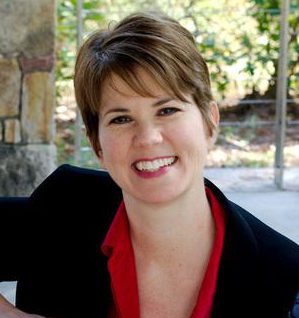The profession of music therapy, as it is known today, began after World War I and World War II, when veterans who were suffering from emotional and physical trauma were notably responsive to the use of music as a therapeutic modality. This led to the hiring of musicians in veterans hospitals – but the need for the specialized training of these musicians led to a growing need for a college curriculum in order to create a standard of practice in music therapy, and to best meet the needs of those seeking treatment.
The definition of Music Therapy as stated by the American Music Therapy Association is below:
“Music Therapy is the clinical and evidence-based use of music interventions to accomplish individualized goals within a therapeutic relationship by a credentialed professional who has completed an approved music therapy program.”
“Music Therapy is an established health profession in which music is used within a therapeutic relationship to address physical, emotional, cognitive, and social needs of individuals. After assessing the strengths and needs of each client, the qualified music therapist provides the indicated treatment including creating, singing, moving to, and/or listening to music. Through musical involvement in the therapeutic context, clients’ abilities are strengthened and transferred to other areas of their lives. Music therapy also provides avenues for communication that can be helpful to those who find it difficult to express themselves in words. Research in music therapy supports its effectiveness in many areas such as: overall physical rehabilitation and facilitating movement, increasing people’s motivation to become engaged in their treatment, providing emotional support for clients and their families, and providing an outlet for the expression of feelings. It is an evidence-based health profession with a strong research foundation.”
What Music Therapy Is Not…
- A person with Alzheimer’s listening to an iPod with headphones of his/her favorite songs
- Groups such as Bedside Musicians, Musicians on Call, Music Practitioners, Sound Healers, and Music Thanatologists
- Celebrities performing at hospitals and/or schools
- A piano player in the lobby of a hospital
- Nurses playing background music for patients
- Artists in residence
- Arts educators
- A high school student playing guitar in a nursing home
- A choir singing on the pediatric floor of a hospital
What Does It Take To Become A Music Therapist?
- Music therapists must have a bachelor’s degree or higher in music therapy from one of AMTA’s 72 approved colleges and universities, including 1200 hours of clinical training.
- Degrees require knowledge in psychology, medicine, and music.
- Music therapists must hold the MT-BC credential, issued through the Certification Board for Music Therapists, which protects the public by ensuring competent practice and requiring continuing education. Some states also require licensure for board-certified music therapists.
- They must acquire a minimum of 100 hours of continuing education credits every five years in order to maintain the MT-BC (music therapist-board certified) credential.
Who Can Benefit From Music Therapy?
Everyone! Music therapists work on a daily basis with premature babies in the NICU, Hospice patients nearing the end of life, and everyone in between. They can help individuals living with neurological disorders such as: Parkinson’s disease, traumatic brain injury, stroke, Alzheimer’s disease and related dementias, aphasia and Autism. People of all ages dealing with various forms of trauma and/or abuse, as well as mental health issues in addition to those living with intellectual delays and physical limitations can benefit from music therapy.
Where Do Music Therapists Work?
- Hospitals
- VA facilities
- Mental health facilities
- Rehabilitation Centers
- Schools
- Long Term Care Facilities
- Hospices
- Prison facilities
- Private Practices
*This list does not include all areas of employment for music therapists
MTs work alongside (and often in conjunction with) neurologists, nurses, physical therapists, occupational therapists, speech therapists, counselors, social workers, art and recreation therapists to name a few. The individualized use of music geared towards a non-musical goal, and implemented by a qualified practitioner has been shown to increase the effectiveness of treatment within a variety of settings.
Why is Music Therapy Effective?
It has long been known that music plays an essential role in a person’s life and within their society. Music has been utilized as a healing influence on health and behavior since the writings of Plato and Aristotle! Due to the advances in modern research techniques in cognitive neuroscience (brain imaging and brain wave recordings) we know that music has a distinct influence on the brain by stimulating physiologically complex cognitive, affective and sensorimotor processes. Music processed in the brain does not stop at music. Music processing can engage, train and retrain non-musical brain and behavioral function, and is therefore successful in a wide range of treatment opportunities.
Some Notable Quotes:
Dr. Clive Robbins (Nordoff-Robbins Music Therapy Clinic):
“Almost all children respond to music. Music is an open-sesame, and if you can use it carefully and appropriately, you can reach into that child’s potential for development.” Nordoff-Robbins uses music therapy to help 100 handicapped children learn and to relate and communicate with others.
Barbara Crowe (past president of the National Association for Music Therapy):
“(Music therapy) can make the difference between withdrawal and awareness, between isolation and interaction, between chronic pain and comfort — between demoralization and dignity.”
Oliver Sacks, M.D.:
“I regard music therapy as a tool of great power in many neurological disorders — Parkinson’s and Alzheimer’s — because of its unique capacity to organize or reorganize cerebral function when it has been damaged.”
Mathew Lee (Acting Director, Rusk Institute, New York):
“Music therapy has been an invaluable tool with many of our rehabilitation patients. There is no question that the relationship of music and medicine will blossom because of the advent of previously unavailable techniques that can now show the effects of music.”
Plato:
“I would teach children music, physics and philosophy; but most importantly music, for the patterns in music and all the arts are the keys to learning.”
Find a music therapist near me.
Sources
- http://www.musictherapy.org/
- Thaut, M.H. & Hoemberg, V. (Eds.). (2014). Handbook of Neurologic Music Therapy. Oxford, UK: Oxford University Press.
- http://www.pbs.org/wnet/musicinstinct/blog/cognition/how-music-can-reach-the-silenced-brain/31/
- http://www.shsu.edu/~pin_www/T@S/sliders/2012/lim.html








